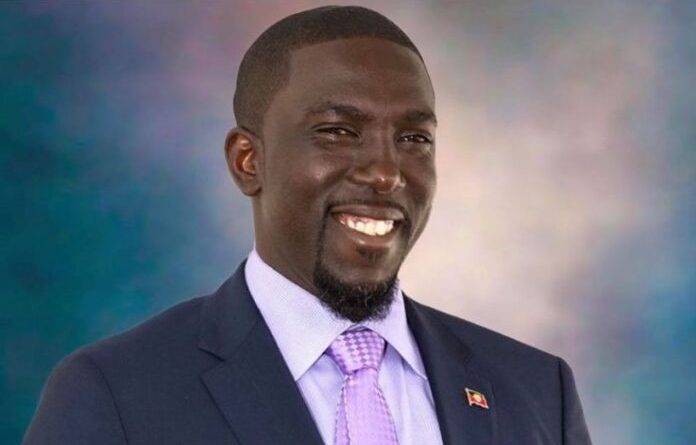Pringle says the country’s water crisis is one of distribution and storage – not production
Opposition Leader Jamale Pringle has accused the Gaston Browne
Administration – that is, the Antigua Public Utilities Authority
(APUA) and its minister – for misleading the public on the true state
of the water crisis, charging that the problem is not only with
production, but there is a major issue with storage and distribution.
In 2014, the Antigua Labour Party (ALP) said it had the solution to
the water problem and was elected to office based on this and
several other promises.
Pringle acknowledges that the Labour Party Government might have
encountered challenges – which could be why the problem
continues after almost a decade.
However, he says, the Administration is not giving a true picture of
what is sustaining the water crisis.
Hence, even with the increase in water production via additional
Reverse Osmosis (RO) plants, the country will still face the decades-
old water problem, he says.
While fixes are being proposed to deal with water production –
which is not the issue, Pringle says – there are no proposals to
address the problem of distribution. And this should be the main
focus, along with storage of the commodity, he points out.
The Opposition leader is asking how it is possible for production to
be treated as the sole or main issue, when the number of RO plants
has increased islandwide and with private water trucks purchasing
water from the Crabbs location every day.
Pringle is recommending that the APUA team up with persons or
entities that know how to deal with such water issues, since the
Government does not appear capable of doing so on its own.
The All Saints East and St. Luke MP proposes the establishment of a
“water fund” – which the United Progressive Party (UPP) had
promised to establish during its General Election campaign.
This project would include private-sector participation – which
would alleviate some of the burden on APUA – because it will
require creative means to deal with this crisis effectively, Pringle
says.
Meanwhile, to ensure their businesses are not affected by the lack of
APUA water, several hotels are installing their own Reverse Osmosis
plants. Reportedly, one resort consumes more than 100,000 gallons
of water per day.
Among the Government’s efforts, APUA reportedly has purchased
ultra-filtration equipment that will help to lengthen the life of the
membranes used to separate the salts and minerals from the
seawater.
Further, officials say that some rusting equipment has been
removed from the Ffryes plant and replaced by new pieces.




